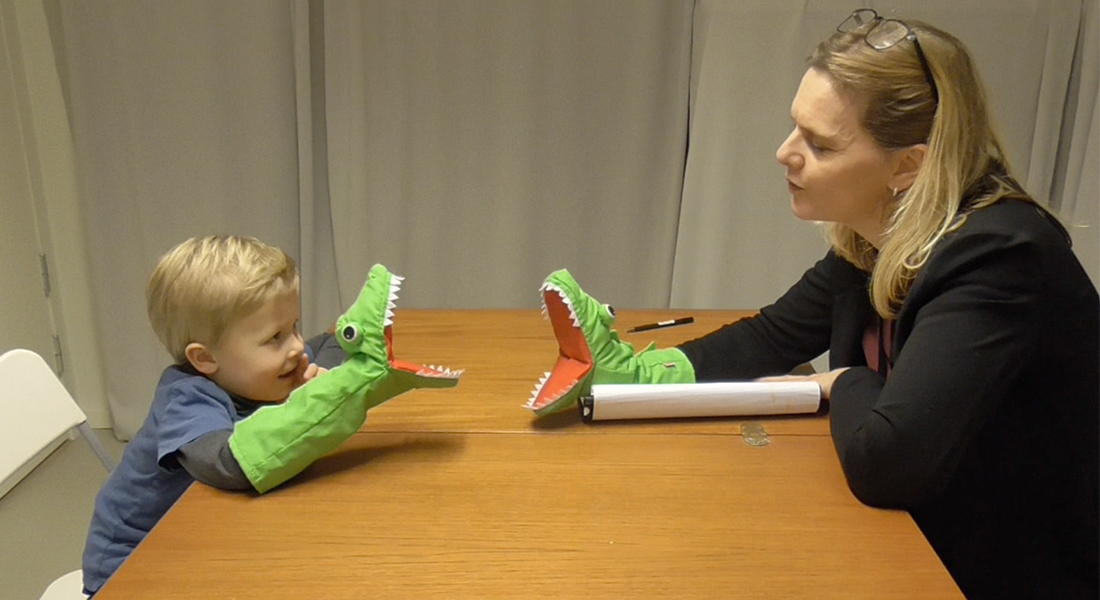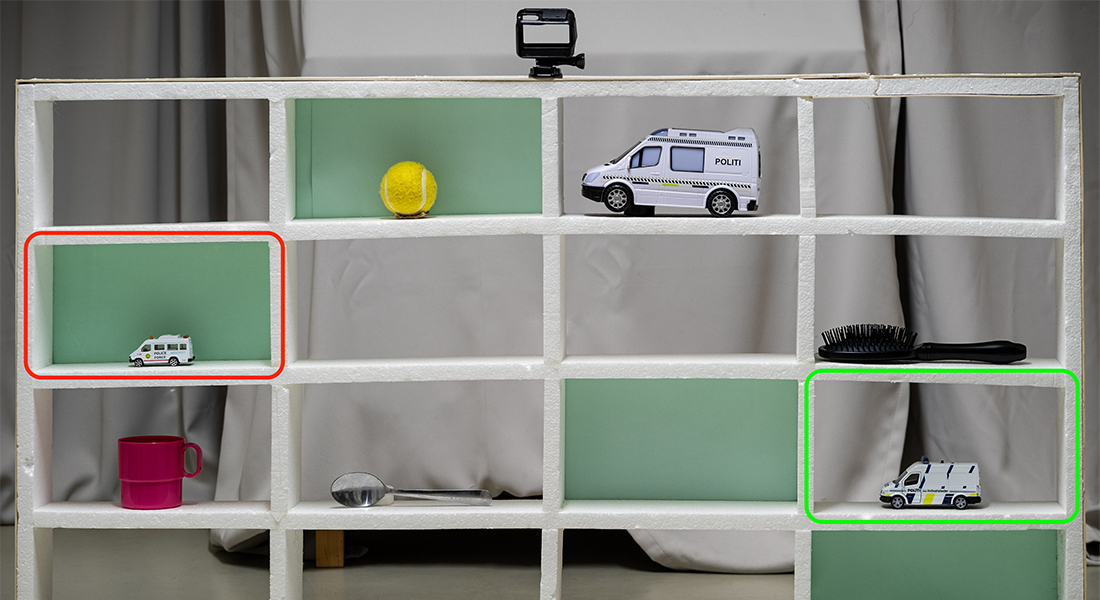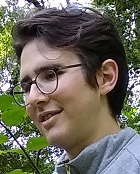The "director" task: Which car do you mean?
When communicating, it is important to be able to put yourself in the shoes of others in order to understand that what another person sees or knows may be different from our own perspective. While children are good communicators, they sometimes make what are known as 'egocentric errors': they assume that what they see, the other person would know of as well.

In this study, we investigated whether performing opposite movements between the child and another person would highlight the differences between their visual perspectives and reduce 'egocentric errors'.
Children aged 3–6 years first participated in a game for a few minutes in which they made the opposite (inhibition group) or the same (imitation group) hand movements as an experimenter or the opposite of a video of a flower doll (non-social inhibition group).
A communicative game then followed, where the experimenter gave the children instructions about which objects should be moved in a bookcase. Some objects were hidden from the experimenter but not the children, so the children had to ignore these objects when choosing the correct toy.

Our results show that in the inhibition group, children chose the correct object (from the experimenter's perspective) more often (2.4 out of 4 times on average) than the imitation group (1.5 out of 4 times). This suggests that highlighting the differences between the self-other perspective helps children consider the unique perspective of the other. There was no improvement in the non-social inhibition group, showing that the results are specific to doing the opposite of another person and not general response inhibition. Additionally, there was also an overall improvement with age between 3-6 years, showing that this age is important for children to become effective communicators.
Find more information about our results in our publication Training self-other distinction facilitates perspective taking in young children.
| Dora Kampis PhD in Cognitive Science Assistant Professor, Tenure track dk@psy.ku.dk |
 |
|
PhD, Professor
victoria.southgate@psy.ku.dk |
 |
| Dimitrios Askitis PhD in Mathematics Postdoc dimitrios.askitis@psy.ku.dk |
 |
| Helle Lukowski Duplessy Cand.psych. Research assistant and lab manager hedu@psy.ku.dk |
About the study
The "director" task began in 2018 and was completed in 2022.
The study was supported by the European Research Council (ERC).
Contact
Dora Kampis
Assistant Professor, tenure track
Centre for Early Childhood Cognition
dk@psy.ku.dk
